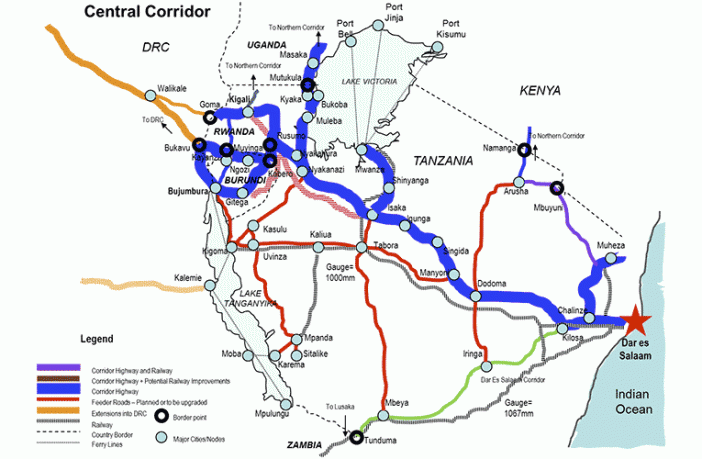- The Tanzanian energy utility, Tanzania Electric Supply Company Limited (Tanesco) will set aside 70MW power capacity allocation to power the first phase of the Tanzania standard gauge railway (SGR). Read more on the SGR here/.
According to the country’s Energy minister, Dr Medard Kalemani, the power line construction between Dar es Salaam (Kinyerezi) and Morogoro (Kingorwira) is complete. “We have invested US $30.7m in building the necessary power infrastructure for the first phase of the SGR. The project is done by 100%,” he said. The minister was speaking at a press briefing on the project earlier in the week.
He further added that the 70MW would be immediately availed to Tanzania Railways Corporation (TRC) as soon as it (TRC) gets ready to start run its electricity-powered SGR trains between Dar es Salaam and Morogoro.
Dr Kalemani, further allayed fears that SGR train operations could be disrupted in times of power cuts, saying the locomotives being imported will be those that have inbuilt power-saving systems to keep them charged for not less than one hour. “Firstly, power disruptions will be reduced but secondly, the locomotives will run in such a way that they are able to keep themselves powered for an hour to two from the time that a power cut happens,” said the minister.
Tanzania is currently undertaking a number of power generation projects including the 2,115MW Julius Nyerere Hydropower Station in an effort to meet the goal of producing 5,000MW by the year 2025. Currently, the country produces 1,604MW. This is more than the current demand, which stands at 1,180MW.
According to Dr Kalemani, hydropower remains the cheapest source of electricity and this means that the Julius Nyerere Hydropower Station will bring electricity costs down. “It costs only US $0.016 to produce a unit of electricity from water. Nuclear comes second with US $0.028 per unit. Wind and geothermal are the third and fourth cheapest sources, with the production of each unit costing US $0.044 and US $0.048 respectively.,” he affirmed.
Author: Bryan Groenendaal















